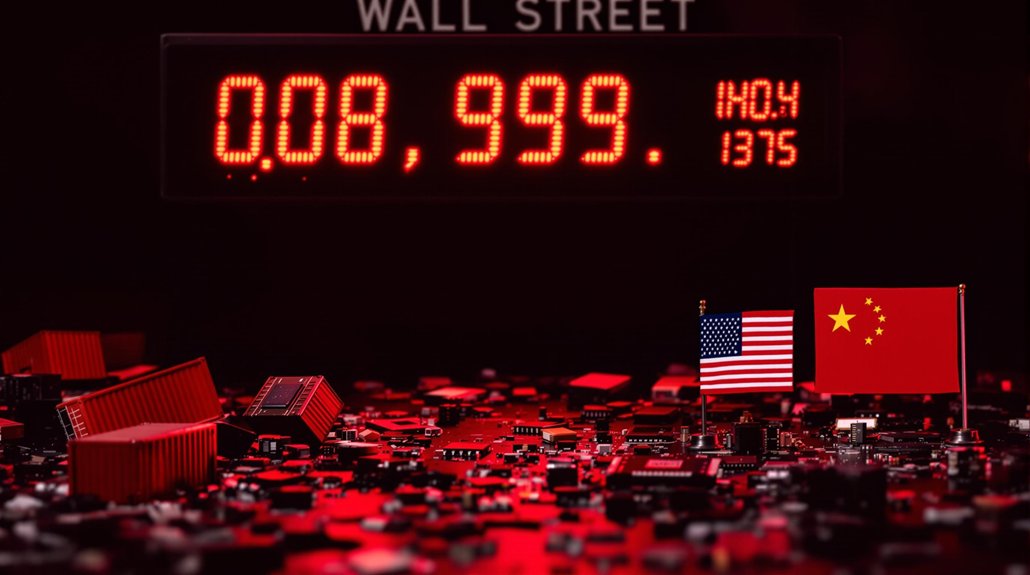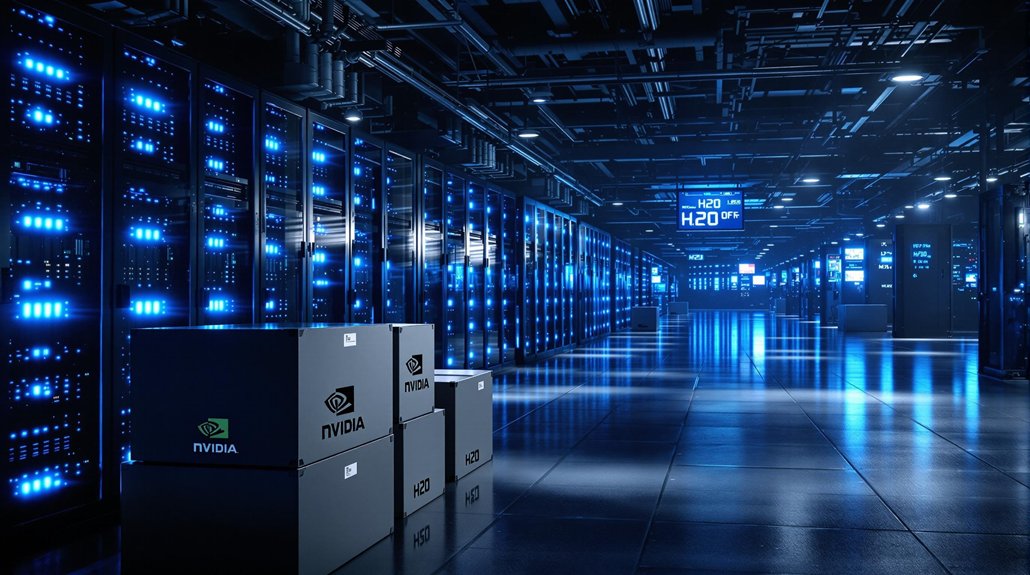Tech markets have plunged since Trump’s tariff announcement in April, with Wall Street down 20% from record highs. The Magnificent Seven tech giants are facing steep losses, with Tesla down 45%. Supply chain disruptions and higher production costs are squeezing profit margins as companies struggle with Asian parts dependencies. AI remains a bright spot, with eight AI-related stocks contributing 55% of market gains in 2024. Further details reveal how investors are adapting to this volatile landscape.
Tech markets across the globe are taking a serious hit as Trump’s tariffs spark widespread disruption. Wall Street has fallen 20% below its record highs, with tech stocks bearing the brunt of the decline. The tariffs have created significant supply chain problems, especially for companies that rely on parts from Asia.
Trade tensions with China have gotten worse, making it more expensive to produce tech hardware. Major tech companies, particularly those making semiconductor chips, have seen their stock values drop sharply. The Magnificent Seven tech giants have experienced dramatic losses, with Tesla down by 45 percent since the April 2nd tariff announcement. Investors are now looking to spread their money into markets outside the US to reduce their risks.
Escalating China tensions drive up hardware costs, sending semiconductor stocks tumbling as investors seek global diversification.
Semiconductor companies are showing mixed results in this difficult environment. While the chip industry saw strong growth in 2024, reaching $627 billion in sales, the tariffs have dampened expectations for 2025. Companies focused on artificial intelligence are doing slightly better than those making chips for cars, phones, and computers.
Generative AI has been a bright spot in the gloomy market. Investments in AI infrastructure have helped offset some losses in other tech areas. Companies with strong AI products have shown more resilience despite tariff concerns. This mirrors the trend seen in 2024 when eight stocks primarily benefiting from AI contributed 55% of total market gains. Software innovations tied to AI are still creating revenue opportunities even as hardware production faces challenges.
The tariffs have triggered changes in investor behavior worldwide. There’s growing interest in Asian and European tech stocks as alternatives to US investments. Some investors are turning to ETFs and mutual funds that focus on global tech. Others are seeking safety in ESG investments and gold-backed securities.
Tech companies are struggling with higher production costs, which are squeezing their profit margins. Supply chain delays are affecting hardware production schedules and deliveries.
The combination of tariffs, market volatility, and production challenges has created a perfect storm for the tech sector, with recovery prospects now tied closely to policy changes and global economic conditions.









